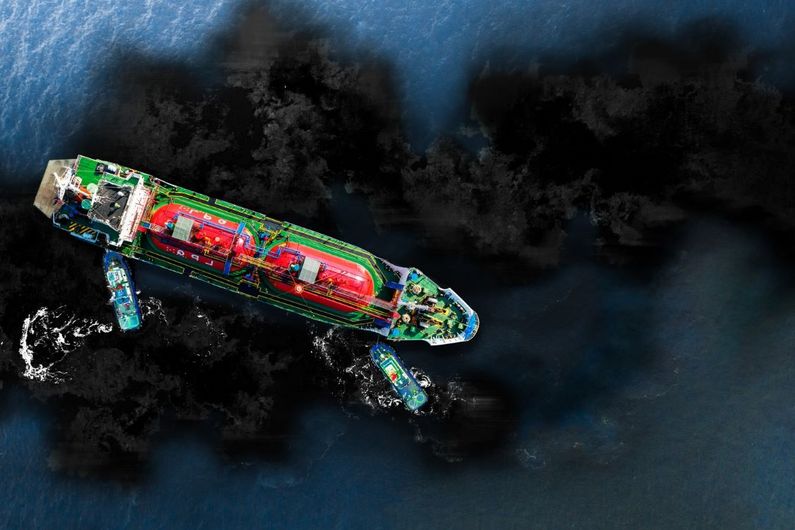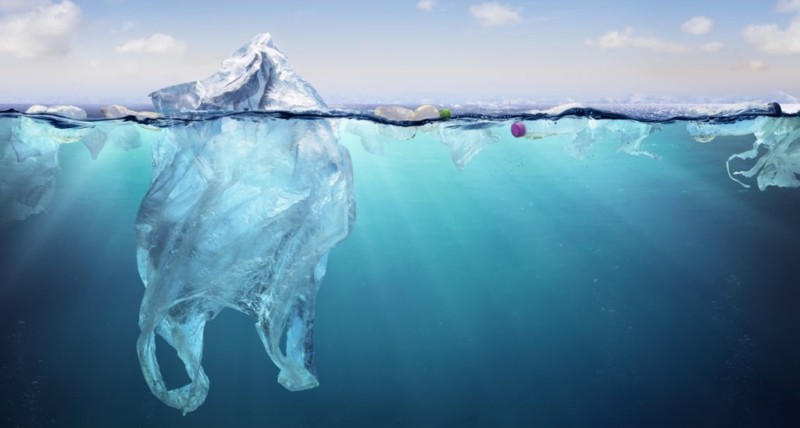In 2016, the derailment in Cameroon of a train chartered by a subsidiary of a large French multinational left more than 50 dead and more than 500 injured. The way in which this tragic train accident was handled left its mark on Raymond Tchassem Nzale, a doctoral student in law at the University of Montreal under the direction of Faculty of Law professors Hugo Tremblay and Guy Lefebvre. “I had the feeling that the victims were not, willy-nilly, sufficiently protected, particularly by the local government, whose land mission is to watch over its fellow citizens,” he laments. What would happen if an oil spill resulting from an international oil transport operation occurred in an African country? asked the doctoral student. While the African maritime space may appear to be the scene of barely veiled clashes on the part of great powers or foreign companies, what compensation for victims would be possible?
The results of Raymond Tchassem Nzale’s work are presented on the occasion of the 91st Acfas Congress.
Funds provided for victims of oil spills
Under the International Convention on Civil Liability for Oil Pollution Damage, 1992, adopted by the United Nations International Maritime Organization (IMO), shipowners are automatically liable for damages linked to pollution caused by the hydrocarbons they transport. They must therefore compensate victims of oil spills in the first instance.
The IMO also established the International Oil Pollution Compensation Funds, financed by cargo owners established in the territories of their respective member states. These are, on the one hand, the 1992 Fund and, on the other hand, the 2003 Supplementary Fund, born from the insufficiencies of the 1992 Fund. These funds act in the event of absence of taxable compensation to the owner of the ship polluter or when these repair mechanisms are ineffective. “States and Funds are required to ensure that victims receive full compensation for the harm they have suffered. International conventions also provide for the principle of obligatory cooperation between States,” explains Raymond Tchassem Nzale.
Limits to compensation
The International Maritime Organization sets the principle of full compensation, but it also offers investors the possibility of limiting their liability up to a certain ceiling. In this way, if a shipowner has subscribed to a liability limitation guarantee and the damage is greater than the limit that the International Compensation Funds are supposed to pay, the relevant conventions simply say that the available sums are distributed fairly between the victims. This is problematic, mentions Raymond Tchassem Nzale: “For example, if there are 10 victims and each is entitled to $10,000, but there is only $80,000, they will not each be able to receive 10 000$. The sum will be distributed proportionally between the different victims, which poses a problem even with regard to full reparation.
In addition, each State has its own procedures, which leads to unequal treatment between victims. The rules may be less favorable in some countries compared to others, creating disparities in compensation for victims. In principle, when a disaster occurs, victims in the territory concerned initiate compensation procedures with the competent local judicial authorities. If they are not satisfied with the compensation offered by these States on the basis of the 1992 Convention on the Civil Liability of the Shipowner, they can then apply to the International Compensation Funds to complete their compensation.
Victims can also contact the 1992 Fund directly. The latter will then be required to pay the full amount of reparations due in accordance with the legal ceilings set, including the share payable by the owner of the polluting ship. Whatever option is chosen, if the available compensation resources prove insufficient despite the intervention of the Funds, the victims find themselves without additional recourse.
The inoperability of international law on accountability for oil spills in Africa
Although the problem of oil spills is global, it presents itself differently in developing countries, particularly in Africa, for several reasons. On the one hand, the laws governing liability in the event of oil spills do not correspond to African realities. “These conventions were adopted just after the decolonization of Africa and subsequent modifications took place during the Cold War, a period when Africa’s voice was often ignored in international forums,” observes Raymond Tchassem Nzale. As a result, these conventions, of Western origin, do not sufficiently take into account African social, economic and political contexts, although they have a universal scope.
In addition, most African states are economically dependent on foreign multinationals, particularly in the maritime sector. Many African states, faced with basic social and economic difficulties, do not find themselves in a context favorable to the consideration of contemporary environmental concerns and rigorous respect for human rights. For example, Liberia would have become the world’s first flag of convenience in 2022, even though the majority of its ships actually belong to foreign companies. In the event of an oil spill caused by a ship owned by a major foreign power, it is unlikely that victims would be compensated in accordance with treaty requirements.
The inoperability of international law on accountability for oil spills in Africa Although the problem of oil spills is global, it presents itself differently in developing countries, particularly in Africa, for several reasons. On the one hand, the laws governing liability in the event of oil spills do not correspond to African realities. “These conventions were adopted just after the decolonization of Africa and subsequent modifications took place during the Cold War, a period when Africa’s voice was often ignored in international forums,” observes Raymond Tchassem Nzale. As a result, these conventions, of Western origin, do not sufficiently take into account African social, economic and political contexts, although they have a universal scope. In addition, most African states are economically dependent on foreign multinationals, particularly in the maritime sector. Many African states, faced with basic social and economic difficulties, do not find themselves in a context favorable to the consideration of contemporary environmental concerns and rigorous respect for human rights. For example, Liberia would have become the world’s first flag of convenience in 2022, even though the majority of its ships actually belong to foreign companies. In the event of an oil spill caused by a ship owned by a major foreign power, it is unlikely that victims would be compensated in accordance with treaty requirements. Moreover, “the current mechanisms of international law do not seem effective enough to force these powers to respect their obligations in terms of compensation. Therefore, apart from the often learned traditional theories of international law, the current oil spill liability regime does not operate the same way everywhere. If we want to find solutions, we should already admit the incapacity of law to resolve the problem alone and take into account an interdisciplinary perspective by adding economic, geopolitical and sociological components,” concludes Raymond Tchassem Nzale .



